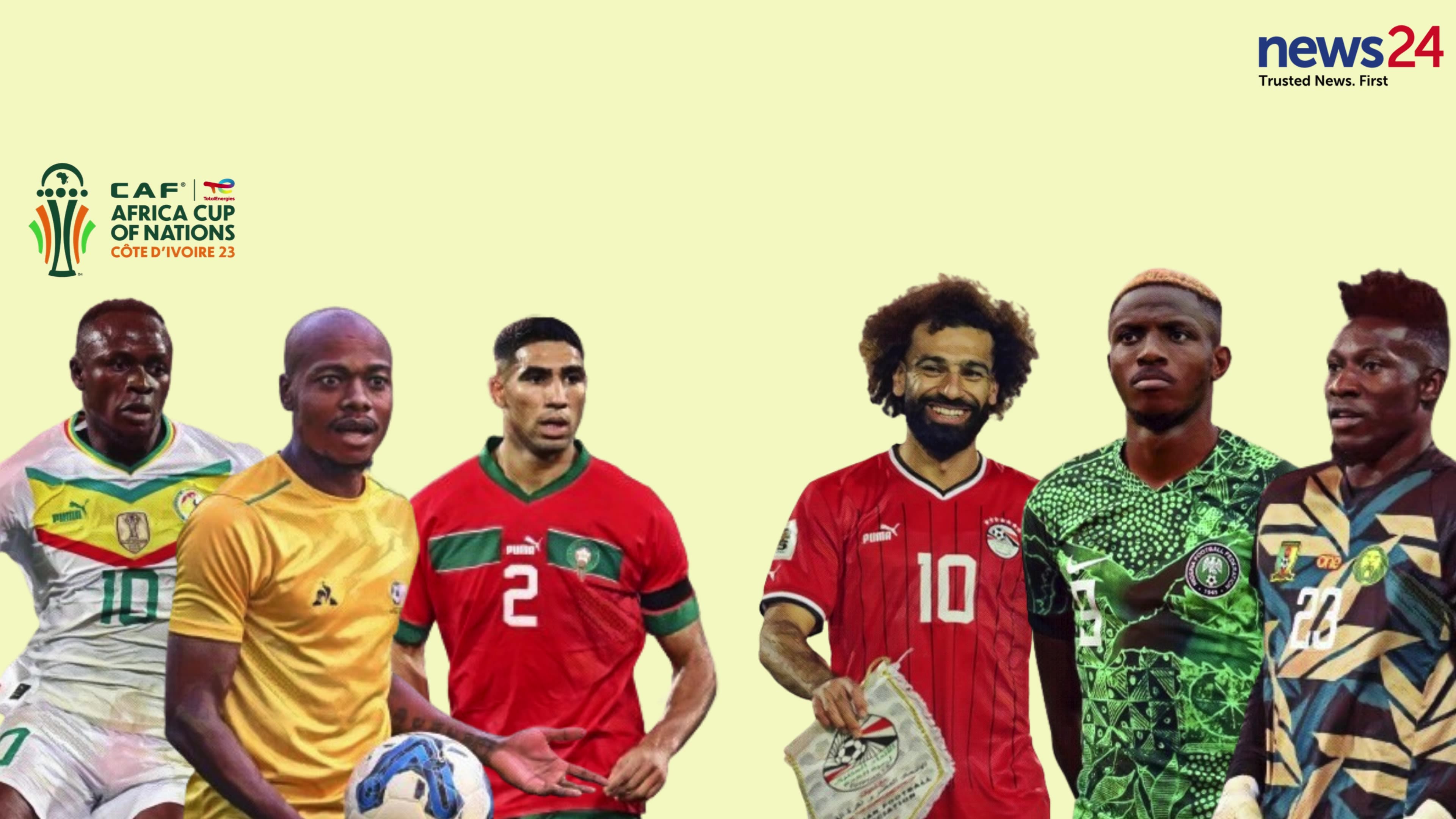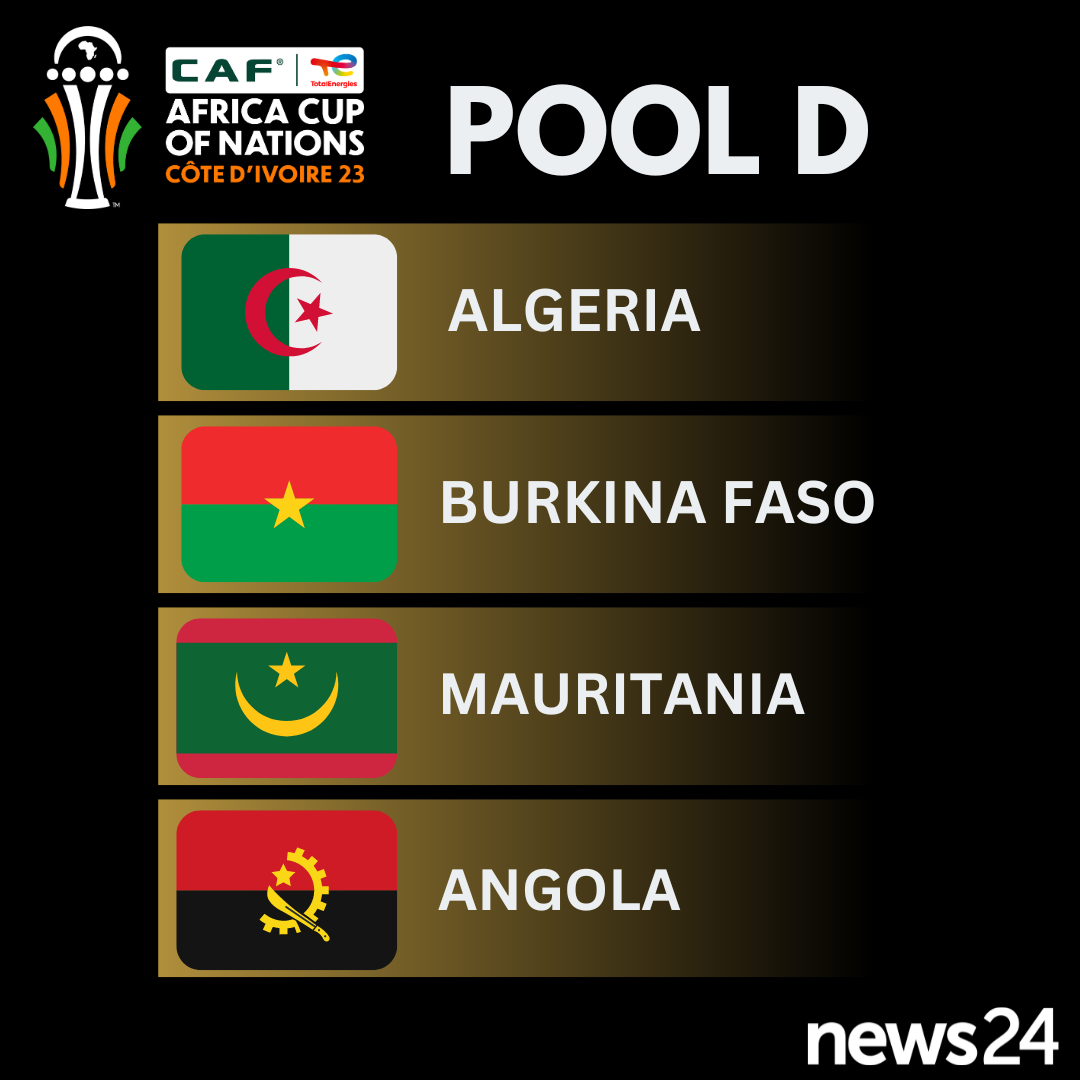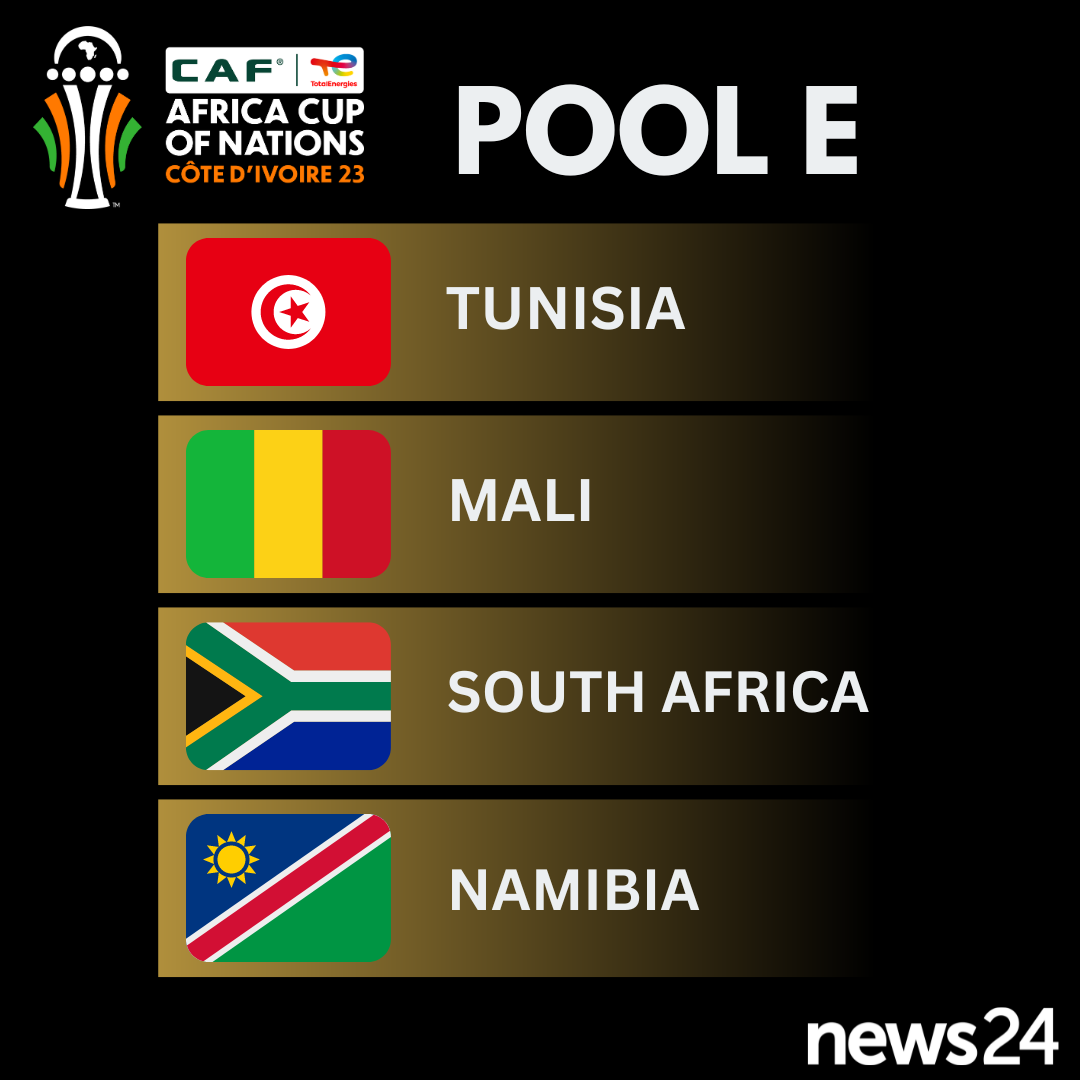
The 2023 Africa Cup of Nations (Afcon) is headlined by a king without a crown, a promising prince who leads a royal outfit that's playing like peasants, and history-makers who have everything but what matters most to them.
These are just some of the storylines that will play themselves out at the Afcon that kicks off on 13 January and will run until 11 February. Mohamed Salah and his legion of Egyptian supporters will be hoping the King of the Kop will still be in Ivory Coast on 11 February - much to the disappointment of Liverpool who are counting down the days until their talisman returns.
While Salah has been sensational for the English outfit, he has failed to lead the Pharaohs to Afcon glory – losing in the final to Senegal in the last edition. He will be eager to change that, and rubber stamp his place as the greatest Egyptian player of all time.
Standing in his way will be Vincent Osimhen, the Nigerian prince who is the reigning African Footballer of the Year and a league winner with Napoli. Osimhen leads a deadly Nigerian attack that has been blunt in the FIFA World Cup qualifiers, not helped by growing calls to sack coach Jose Peseiro. Walid Regragui's men are the highest ranked African side in the world after becoming the first team from the continent to reach the semi-final of a World Cup.
But the Afcon is an unpredictable tournament with lots of banana peels for favourites in an expanded tournament that has many minnows with nothing to lose.

Catch it live
🔴 LIVE | AFCON 2023: All the latest from Ivory Coast
Your LIVE hub for all news, team announcements and results coming out of Africa Cup of Nations 2023.
Pool stages

The Elephants will be vociferously backed by an expectant home crowd that wants to see their team become African champions for a third time. They have the talent and pedigree to achieve that, but first have to negotiate their way out of a tough group that includes the three-time Afcon winners – Nigeria, an Equatorial Guinea that was a surprise package at the last Afcon and who Ivory Coast narrowly beat in their group. A tough Guinea-Bissau completes the group.
The Super Eagles have to shake off a chaotic past couple of months which included failures to get wins over Zimbabwe and Lesotho – leading to one Nigeria Football Federation member saying that if they had the money for a payout, they would fire Peseiro. The last time Nigeria went to a tournament struggling and being led by a coach who was on the verge of being fired, they went all the way and won the 2013 Afcon in South Africa with Stephen Keshi.
You underestimate Nigeria at your own peril. Their strong attack scored 22 goals in six matches in the qualifiers for this tournament.
Equatorial Guinea and the Djurtus of Guinea-Bissau are potential banana peels for Ivory Coast and Nigeria who are favourites to finish in the top two. Djurtus were in the same group as the Super Eagles in the Afcon qualifiers, with both teams winning their away leg 1-0.

Egypt and Ghana know the sweet taste of winning the Afcon, but in recent years they have been forced to stomach the bitter taste of disappointment while trying to return to the heights their people expect them to call home.
The Black Stars have been waiting for more than 40 years to add a fifth Afcon title to their name. That wait was made more painful by losing in the final in 2010 (to Egypt) and 2015 (to Ivory Coast). Andre Ayew was involved in both those final, bawling his eyes out in Equatorial Guinea in 2015 with his emotion getting the better of him so much so that the Elephants' coach, Herve Renard, consoled the midfielder.
Ayew will be chasing history in Ivory Coast. If he scores, he will become the first player to score in seven editions and if he gets a start, he will be the first person to feature in eight Afcons. As the son of the legendary Abedi Pele, who conquered the continent with Ghana, the disappointments have weighed heavily on the 34-year-old.
That pressure, however, pales in comparison to the weight of expectation that Mohamed Salah carries. Salah might be an undisputed great at Liverpool, but in Egypt he is a king without a title. Helping Egypt clinch their record-extending seventh title, to end a 14-year-old wait, would give Salah the crown he needs to be the undisputed greatest player in the history of Egypt. The Pharaohs and the Black Stars should be too strong for Mozambique and Cape Verde to finish in the top two and secure automatic progress to the last 16.

Senegal and Cameroon are part of a new wave of African countries who are backing their young former players with the responsibility of taking charge of their national teams. Aliou Cisse and Rigobert Song, both 47, captained their countries at various Afcons and the World Cup – graduating to coaches who are now leading their countries in the continent's biggest competition.
Cisse's success in the last Afcon, as well as Morocco's Walid Regraui's historic run at the World Cup, has done African coaches a world of good – slowly taking the continent away from the reliance of old, European and South American journeymen who used to dominate the Afcon.
Since Cisse took over, Senegal have grown from promising cats to being proper Lions of Teranga – and with a bite to match. The steady progress the team has been on, losing in the final in 2019 and winning the 2021 editions means that Senegal are among the tournament's favourites.
Cisse has called up a talented team, led by the inspirational Sadio Mane. Their biggest challenge will be Cameroon, a team that has made a habit of disappointing Senegal. It was Song's Cameroon that denied Cisse's Senegal at the 2002 Afcon, with the Indomitable Lions winning a close final that was decided in penalties.
Guinea has the potential to be a party-pooper in a group where Senegal and Cameroon are expected to top. The National Elephants have a good group of individuals who have struggled to become a solid team, but in preparing for this tournament, they sharpened themselves against tough opponents to help them raise their game - including facing Algeria and Ivory Coast.

Djamel Belmadi will be in charge of Algeria for a third successive Afcon after two contrasting spells. Belmadi guided Algeria to glory in 2019, but two years later, in Cameroon, his team crashed out in the group stage in one of the worst Afcon title defences.
This means the coach comes with a lot of pressure at this Afcon. One of the team's biggest challenges in Cameroon was their over reliance on the players who helped them to glory in 2019. Algeria expected to show up and results would take care of themselves.
A large part of that belief stemmed from the fact that Algeria arrived in Cameroon on the back of a 34-match unbeaten run, chasing Italy's record of 37 matches. The draw with Sierra Lione should have sent alarm bells, the team ignored the warning and were humbled by lowly Equatorial Guinea to lose for the first time in 36 matches.
Since that humiliation, Belmadi has brought a number of new faces to slowly shed some of the players who helped them win the Afcon in 2019 but were not at that level anymore. A revived Algeria is among the tournament's dark horses, with Burkina Faso their strongest challenge in the group while Angola will fancy their chances at being among the four best third-placed finishers that will advance to the last 16.

Bafana Bafana are in a tough group with neighbours Namibia, Mali who will enjoy a good crowd in neighbouring Ivory Coast as well as Tunisia – the most consistent side at the Afcon. The north Africans hold the record for the most consecutive Afcon appearances.
This will be their 16th successive Afcon, a position they secured with one of the toughest defences in the qualifiers. Tunisia conceded just one goal in six matches, and that goal came after they had secured qualification for the tournament.
They are favourites to top the group, with Mali the second strongest team on paper. But Hugo Broos' Bafana come into this tournament as a tightknit group that has been playing together for the last two years.
The Belgian has managed to create a strong bond among the players, with the team fighting for each other and even going more than a year unbeaten before losing to Rwanda. They do, however, come into this Afcon with a weak attack following Lebo Mothiba's injury and Lyle Foster asking not to be called up as he deals with his mental health challenges.
The southern African derby against Namibia will be decisive in deciding who of these two teams will sneak into the Afcon as one of the four third-best placed finishers with Tunisia and Mali likely to occupy the first two positions.

The Atlas Lions are strong favourites to win the Afcon after an impressive run in the World Cup in Qatar and as the undisputed kings of African football. Morocco is not only the No 1 ranked team in Africa, but they are also a leading power in the continent.
The country has invested heavily in football, with one of their desires being to be crowned African champions in 2025 when they host the continent. But achieving that early, especially having last won the tournament in 1976, wouldn't be such a bad thing.
Their investment in the game saw them become the first country to offer CAF Pro License qualifications, helping improve their coaches and the standard of Moroccan football which was very high before that. Walid Regragui has plenty of options with one of the best squads at this year's Afcon.
Morocco have a solid defence led by goalkeeper Bounou and an impressive attack that features the likes of Hakim Ziyech and Youssef En-Nesyri.
The battle for who will join Morocco in the last 16 will be the most exciting, with Zambia, the DRC and Tanzania not that far apart. Chipolopolo, winners of the Afcon in 2012, have an exciting but inexperienced squad that will fancy themselves against a disciplined DRC defence.
Bafana Bafana























Your support affords us the time and resources to bring you the best Africa Cup of Nations coverage in South Africa. Stay on top of the game and become a News24 subscriber today.
Design and production: Lynn Butler
Words: Njabulo Ngidi




